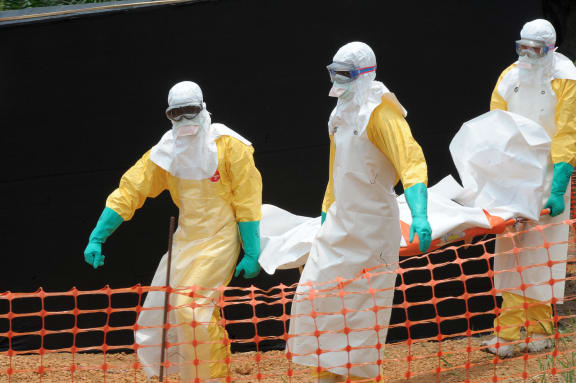Medical teams dealing with an outbreak of the deadly Ebola virus in West Africa are trying to confirm whether the disease has spread to Mali.
The virus has killed 86 people in Guinea and has spread to Liberia, while Sierra Leone has reported suspected cases.

The tropical virus has claimed dozens of lives in Guinea. Photo: AFP
Three suspected cases were reported in Mali, near the border with Guinea, and samples from the victims have been sent to the United States for testing.
The BBC reports there are tight controls on people entering Mali's capital Bamako from the border area. Thermal-imaging cameras are screening passengers at the airport in case they have a fever.
The three people feared to have Ebola have been moved to isolation wards on the edge of the Bamako.
The virus is spread by close contact and kills 25 percent to 90 percent of its victims. There is no known cure or vaccine for the tropical virus, which leads to haemorrhagic fever, causing muscle pain, weakness, vomiting, diarrhoea and, in severe cases, organ failure and unstoppable bleeding.
An Air France plane which landed in Paris from Guinea was quarantined for two hours on Friday morning after the crew suspected a passenger was infected. A spokesman for the airline said the test turned out negative for Ebola.
Saudi Arabia suspended visas for Muslim pilgrims from Guinea and Liberia on Tuesday, in a sign of the growing unease about the outbreak.
Mob attacks treatment centre
An angry crowd attacked a treatment centre in Guinea where staff from Medecins Sans Frontieres (MSF) were working to contain an outbreak of the deadly disease, forcing it to shut down.
Sam Taylor, a spokesman for the medical charity, told Reuters the attackers in Macenta had accused MSF of bringing the disease to the southeastern town.
"We have evacuated all our staff and closed the treatment centre," Mr said.
"We have the full support of the local leaders and we're working with the authorities to try and resolve this problem as quickly as possible so we can start treating people again."

